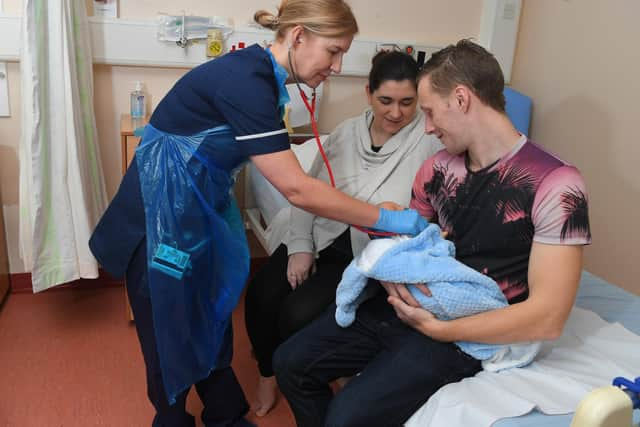New service at Royal Preston Hospital helping poorly babies stay with their mums


The Transitional Care Service is for babies who need close monitoring, or enhanced feeding support such as naso-gastric tube feeds to be cared for alongside their mothers on the postnatal ward.
Babies admitted to the Neonatal Intensive Care (NICU) unit can stay with their mums, with a qualified Neonatal nurse supporting them to care for their well preterm babies. They will help to monitor the baby, help keep the baby warm - on heated beds or incubators - and help with tube feeds if needed.
Advertisement
Hide AdAdvertisement
Hide AdThis means that mums will be with their babies all the time instead of having to go up to NICU to spend time with them before going back down to their own bed on the ward.


The hope is that this new service will speed up the process of babies adjusting, establishing feeds and thus reduce the length of stay in hospital.
Richa Gupta, Consultant in Neonatal said: “This is a great enhancement to the newborn service allowing us to care for babies with Neonatal trained nurses working with the midwives to help reduce mother baby separation, enhancing bonding, and early attachment and opportunities to support establishing breast feeding.”